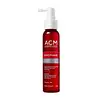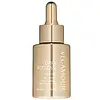What's inside
What's inside
 Key Ingredients
Key Ingredients

 Benefits
Benefits

 Concerns
Concerns

 Ingredients Side-by-side
Ingredients Side-by-side

Alcohol Denat.
AntimicrobialWater
Skin ConditioningBiotin
AntiseborrhoeicCitrus Aurantium Dulcis Fruit Extract
MaskingCitrus Paradisi Peel Oil
MaskingFarnesol
PerfumingGeraniol
PerfumingHelianthus Annuus Seed Oil
EmollientHibiscus Abelmoschus Seed Oil
MaskingJuniperus Oxycedrus Wood Oil
MaskingLimonene
PerfumingLinalool
PerfumingMentha Piperita Oil
MaskingMyrocarpus Fastigiatus Oil
MaskingNiacinamide
SmoothingPanthenol
Skin ConditioningPentylene Glycol
Skin ConditioningPogostemon Cablin Leaf Oil
MaskingPyridoxine Hcl
Skin ConditioningSodium Ascorbyl Phosphate
AntioxidantTocopheryl Acetate
AntioxidantAlcohol Denat., Water, Biotin, Citrus Aurantium Dulcis Fruit Extract, Citrus Paradisi Peel Oil, Farnesol, Geraniol, Helianthus Annuus Seed Oil, Hibiscus Abelmoschus Seed Oil, Juniperus Oxycedrus Wood Oil, Limonene, Linalool, Mentha Piperita Oil, Myrocarpus Fastigiatus Oil, Niacinamide, Panthenol, Pentylene Glycol, Pogostemon Cablin Leaf Oil, Pyridoxine Hcl, Sodium Ascorbyl Phosphate, Tocopheryl Acetate
Water
Skin ConditioningPropanediol
SolventGlycerin
HumectantPentylene Glycol
Skin ConditioningAlcohol Denat.
AntimicrobialPolyglyceryl-10 Laurate
Skin ConditioningNiacinamide
SmoothingCaffeine
Skin ConditioningPalmitoyl Tetrapeptide-20
AntioxidantAcetyl Hexapeptide-1
Skin ConditioningCalcium Pantothenate
Sodium Ascorbyl Phosphate
AntioxidantPyridoxine Hcl
Skin ConditioningTocopheryl Acetate
AntioxidantPolygonum Multiflorum Root Extract
Skin ConditioningZinc PCA
HumectantMaltodextrin
AbsorbentSodium Starch Octenylsuccinate
AbsorbentCitrus Bergamia Peel Oil Expressed
PerfumingGlycine Soja Seed Extract
Skin ConditioningLimonene
PerfumingLinalool
PerfumingCitric Acid
BufferingCitral
PerfumingSilica
AbrasiveDextran
Glycoproteins
Skin ConditioningWater, Propanediol, Glycerin, Pentylene Glycol, Alcohol Denat., Polyglyceryl-10 Laurate, Niacinamide, Caffeine, Palmitoyl Tetrapeptide-20, Acetyl Hexapeptide-1, Calcium Pantothenate, Sodium Ascorbyl Phosphate, Pyridoxine Hcl, Tocopheryl Acetate, Polygonum Multiflorum Root Extract, Zinc PCA, Maltodextrin, Sodium Starch Octenylsuccinate, Citrus Bergamia Peel Oil Expressed, Glycine Soja Seed Extract, Limonene, Linalool, Citric Acid, Citral, Silica, Dextran, Glycoproteins
Alternatives
Ingredients Explained
These ingredients are found in both products.
Ingredients higher up in an ingredient list are typically present in a larger amount.
Alcohol Denat. is an alcohol with a denaturant property. It is created by mixing ethanol with other additives.
This ingredient gets a bad rep because it is irritating and drying - mostly due to its astringent property. Astringents draw out natural oils in tissue, constricting pores and leaving your skin dried out.
However, alcohol denat. is not all that bad.
Due to its low molecular weight, alcohol denat. tends to evaporate quickly. One study on pig skin found half of applied alcohol evaporated in 10 seconds and less than 3% stayed on skin.
This also helps other ingredients become better absorbed upon application.
Studies are conflicted about whether this ingredient causes skin dehydration. One study from 2005 found adding emollients to propanol-based sanitizer decreased skin dryness and irritation. Another study found irritation only occurs if your skin is already damaged.
Small amounts of alcohol are generally tolerated by oily skin or people who live in humid environments.
The rule of thumb is if this alcohol is near the end of an ingredients list, it will probably not affect your skin much.
Also...
This ingredient has antimicrobial and solvent properties.
The antimicrobial property helps preserve products and increase their shelf life. As a solvent, it helps dissolve other ingredients.
Other types of astringent alcohols include:
Learn more about Alcohol Denat.Limonene is a fragrance that adds scent and taste to a formulation.
It's found in the peel oil of citrus fruits and other plants such as lavender and eucalyptus. The scent of limonene is generally described as "sweet citrus".
Limonene acts as an antioxidant, meaning it helps neutralize free radicals.
When exposed to air, oxidized limonene may sensitize the skin. Because of this, limonene is often avoided by people with sensitive skin.
The term 'fragrance' is not regulated in many countries. In many cases, it is up to the brand to define this term. For instance, many brands choose to label themselves as "fragrance-free" because they are not using synthetic fragrances. However, their products may still contain ingredients such as essential oils that are considered a fragrance.
Learn more about LimoneneLinalool is a fragrance and helps add scent to products. It's derived from common plants such as cinnamon, mint, citrus, and lavender.
Like Limonene, this ingredient oxidizes when exposed to air. Oxidized linalool can cause allergies and skin sensitivity.
This ingredient has a scent that is floral, spicy tropical, and citrus-like.
Learn more about LinaloolNiacinamide is a multitasking form of vitamin B3 that strengthens the skin barrier, reduces pores and dark spots, regulates oil, and improves signs of aging.
And the best part? It's gentle and well-tolerated by most skin types, including sensitive and reactive skin.
You might have heard of "niacin flush", or the reddening of skin that causes itchiness. Niacinamide has not been found to cause this.
In very rare cases, some individuals may not be able to tolerate niacinamide at all or experience an allergic reaction to it.
If you are experiencing flaking, irritation, and dryness with this ingredient, be sure to double check all your products as this ingredient can be found in all categories of skincare.
When incorporating niacinamide into your routine, look out for concentration amounts. Typically, 5% niacinamide provides benefits such as fading dark spots. However, if you have sensitive skin, it is better to begin with a smaller concentration.
When you apply niacinamide to your skin, your body converts it into nicotinamide adenine dinucleotide (NAD). NAD is an essential coenzyme that is already found in your cells as "fuel" and powers countless biological processes.
In your skin, NAD helps repair cell damage, produce new healthy cells, support collagen production, strengthen the skin barrier, and fight environmental stressors (like UV and pollution).
Our natural NAD levels start to decline with age, leading to slower skin repair, visible aging, and a weaker skin barrier. By providing your skin niacinamide, you're recharging your skin's NAD levels. This leads to stronger, healthier, and younger looking skin.
Another name for vitamin B3 is nicotinamide. This vitamin is water-soluble and our bodies don't store it. We obtain Vitamin B3 from either food or skincare. Meat, fish, wheat, yeast, and leafy greens contain vitamin B3.
The type of niacinamide used in skincare is synthetically created.
Learn more about NiacinamidePentylene glycol is typically used within a product to thicken it. It also adds a smooth, soft, and moisturizing feel to the product. It is naturally found in plants such as sugar beets.
The hydrophilic trait of Pentylene Glycol makes it a humectant. As a humectant, Pentylene Glycol helps draw moisture from the air to your skin. This can help keep your skin hydrated.
This property also makes Pentylene Glycol a great texture enhancer. It can also help thicken or stabilize a product.
Pentylene Glycol also acts as a mild preservative and helps to keep a product microbe-free.
Some people may experience mild eye and skin irritation from Pentylene Glycol. We always recommend speaking with a professional about using this ingredient in your routine.
Pentylene Glycol has a low molecular weight and is part of the 1,2-glycol family.
Learn more about Pentylene GlycolPyridoxine hydrochloride, also known as vitamin B6, has skin conditioning properties. According to a manufacturer, this ingredient is an effective anti-dandruff treatment as it reduces sebum levels and oily spots.
Sodium Ascorbyl Phosphate is a form of Vitamin C. It is the salt of ascorbic acid.
This ingredient is more gentle than ascorbic acid. It is also more stable when exposed to light and oxygen.
Vitamin C helps reduce redness, improve skin texture, reduce the effects of aging, reduce the visibility of dark spots, and brighten skin.
Your skin uses Vitamin C to produce collagen and collagen production plays a role in having a strong skin barrier and plump skin. As an antioxidant, this ingredient also helps reduce the signs of aging such as fine-lines and wrinkles.
VItamin C helps brighten skin by blocking the process of skin darkening.
In a 2011 study, Sodium Ascorbyl Phosphate was found to have antibacterial properties. This may help treat acne.
Read more about other types of Vitamin C:
Learn more about Sodium Ascorbyl PhosphateTocopheryl Acetate is AKA Vitamin E. It is an antioxidant and protects your skin from free radicals. Free radicals damage the skin by breaking down collagen.
One study found using Tocopheryl Acetate with Vitamin C decreased the number of sunburned cells.
Tocopheryl Acetate is commonly found in both skincare and dietary supplements.
Learn more about Tocopheryl AcetateWater. It's the most common cosmetic ingredient of all. You'll usually see it at the top of ingredient lists, meaning that it makes up the largest part of the product.
So why is it so popular? Water most often acts as a solvent - this means that it helps dissolve other ingredients into the formulation.
You'll also recognize water as that liquid we all need to stay alive. If you see this, drink a glass of water. Stay hydrated!
Learn more about Water